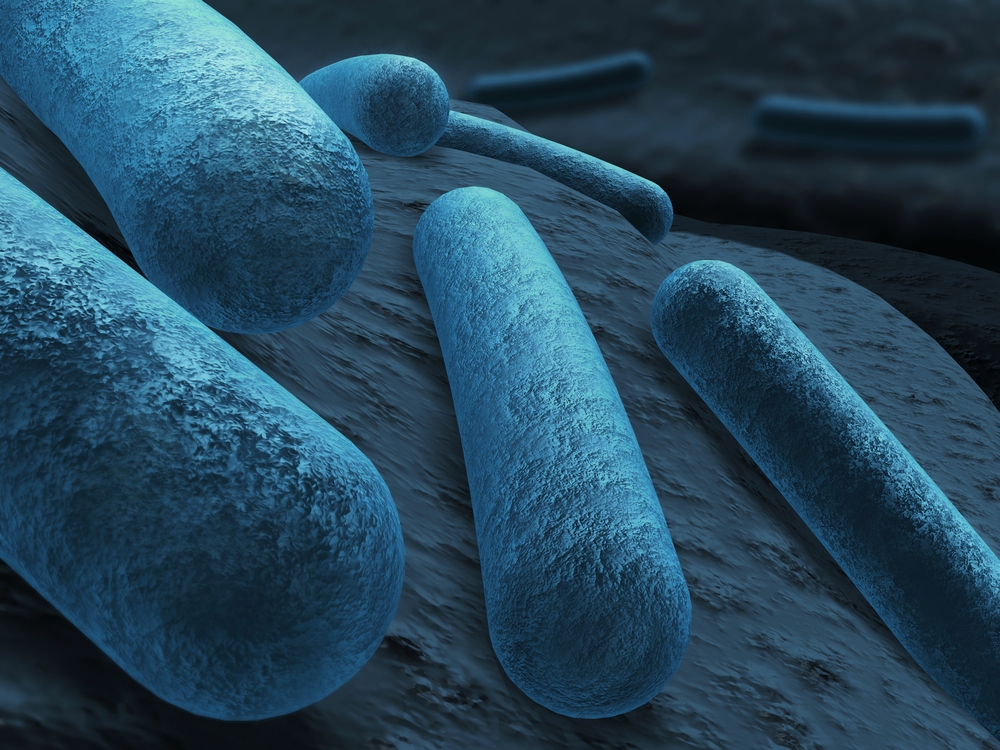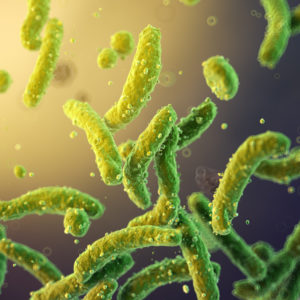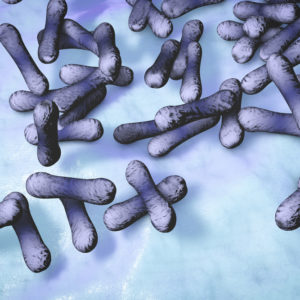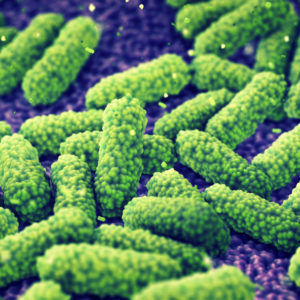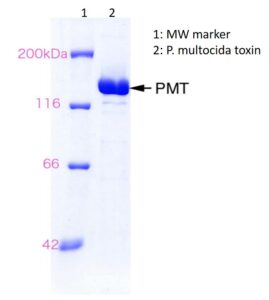
SDS-PAGE: SDS-polyacrylamide gel electrophoresis of Pasteurella multocida toxin (PMT).
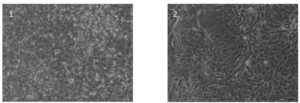
Activity Assay: Assay of biological activity of Pasteurella multocida toxin (PMT): Mouse embryonic cells (Swiss 3T3) were treated with PMT at 10 ng/ml at 37℃ for 18 h. (1) untreated cells. (2) Treated cells; Foci formation by aggregation of cells was observed.
Pasteurella Multocida Toxin, Active
$881.36 excl. VAT
This toxin is derived from a recombinant ToxA with N-terminal 6xHis-tag expressed in E. coli. Manufactured for studies on the GTP trimer bound protein- dependent signaling pathway and as a PMT antigen for immunological assays such as ELISA, western blotting and dot blotting.
PASTEURELLA MULTOCIDA TOXIN, ACTIVE
Pasteurella multocida toxin (active) is derived from a recombinant ToxA with N-terminal 6xHis-tag expressed in E. coli. Manufactured for studies on the GTP trimer bound protein- dependent signaling pathway and as a PMT antigen for immunological assays such as ELISA, western blotting and dot blotting.
PRODUCT DESCRIPTION – PASTEURELLA MULTOCIDA TOXIN, ACTIVE
- Recombinant active toxin of Pasteurella multocida.
- Expressed in E. coli from the ToxA with N-terminal 6xHis-tag.
- >90% purity by SDS-PAGE (CBB staining).
- Mouse embryonic cells (Swiss 3T3) were treated with PMT at 10 ng/ml at 37℃ for 18 h. Foci formation by aggregation of cells was observed.
BACKGROUND
Pasteurella multocida is a frequent commensal of the respiratory tract of animals. As a facultative pathogen, it can lead to severe and economically important diseases, such as shipping fever in cattle, snuffles in rabbits, and fowl cholera in poultry and is a zoonotic disease caused by scratches, bites, and saliva from pet animals such as cats and dogs (Harper et al., 2006; Wilkie et al., 2012). One of the major virulence factors of P. multocida is the protein toxin PMT (P. multocida toxin), which is produced by serogroup D and some A strains. PMT is the causative agent to induce atrophic rhinitis in pigs, characterized by shortening and twisting of the snout due to the loss of nasal turbinate bones (Horiguchi, 2012).
PMT activates various heterotrimeric G proteins and many are substrates of the toxin. The 146-kDa toxin PMT comprises 1,285 amino acids (aa) (Orth & Aktories, 2012). Different domains of PMT are involved in cell uptake and intracellular action. The receptor binding and translocation domains are located in the N terminus (aa 1 to 574). Whereas the receptor binding domain has not been characterized in detail, two amphipathic helices, covering residues 402 to 457, are suggested to be involved in membrane insertion and translocation (Baldwin et al., 2004). So far, the cell surface receptor of PMT is not known (Brothers et al., 2011). PMT can be utilized as a transporter to carry a non-cell-permeating protein (DTa) as a fusion protein into the cytosol of host cells (Bergmann et al., 2013).
REFERENCES
- Baldwin MR, Lakey JH, Lax AJ. Identification and characterization of the Pasteurella multocida toxin translocation domain. Mol Microbiol. 2004 Oct;54(1):239-50.
- Brothers MC, Ho M, Maharjan R, Clemons NC, Bannai Y, Waites MA, Faulkner MJ, Kuhlenschmidt TB, Kuhlenschmidt MS, Blanke SR, Rienstra CM, Wilson BA. Membrane interaction of Pasteurella multocida toxin involves sphingomyelin. FEBS J. 2011 Dec;278(23):4633-48.
- Harper M, Boyce JD, Adler B. Pasteurella multocida pathogenesis: 125 years after Pasteur. FEMS Microbiol Lett. 2006 Dec;265(1):1-10.
- Horiguchi Y. Swine atrophic rhinitis caused by pasteurella multocida toxin and bordetella dermonecrotic toxin. Curr Top Microbiol Immunol. 2012;361:113-29.
- Orth JH, Aktories K. Molecular biology of Pasteurella multocida toxin. Curr Top Microbiol Immunol. 2012;361:73-92.
- Bergmann S, Jehle D, Schwan C, Orth JHC, Aktories K. Pasteurella multocida Toxin as a Transporter of Non-Cell-Permeating Proteins. Infect Immun. 2013 Jul; 81(7): 2459–2467.
- Wilkie IW, Harper M, Boyce JD, Adler B. Pasteurella multocida: diseases and pathogenesis. Curr Top Microbiol Immunol. 2012;361:1-22.

